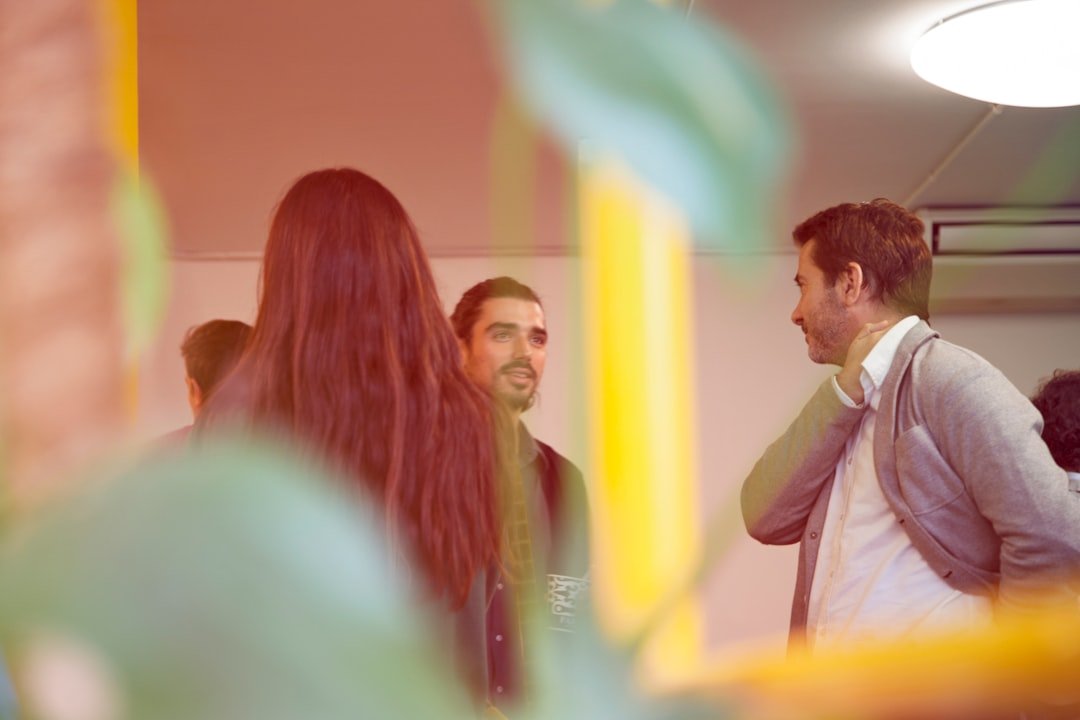I used to hate networking events. Seriously. Walking into a room full of strangers felt like a performance. I worried I wasn’t smart enough, successful enough, or interesting enough. It reminded me of the old me. The guy who hid behind video games binge eating and a cloud of smoke. That version of me was full of insecurity and always felt like a fraud.

But something shifted when I started changing my life. When I shed over 110 pounds and broke free from my worst habits I learned a powerful lesson. Real change isn’t about pretending. It’s about being honest with yourself and others. I realized networking isn't about collecting business cards or putting on a show. It’s about making genuine human connections. It’s about seeing the person in front of you not just what they can do for you.
Once I understood that everything changed. It became less about pressure and more about purpose. If you dread these events like I did I want to share what I’ve learned. Here are 30 simple tips to help you succeed not just at networking but at building real relationships.
Part 1: Before You Go
Preparation turns anxiety into confidence. A little work upfront makes a huge difference.
- Set a Simple Goal. Don’t aim to meet everyone. Aim to have two or three meaningful conversations. That’s a win.
- Do Your Homework. Look up the event speakers or sponsors. Knowing a little about them gives you a great conversation starter.
- Prepare Your Introduction. It’s not a sales pitch. Just be ready to say who you are and what you do in a sentence or two. Keep it natural.
- Have Questions Ready. Think of a few open-ended questions. "What's the most exciting project you're working on?" is better than "Do you like your job?"
- Eat a Snack. Never network on an empty stomach. You’ll be distracted and low on energy.
- Dress to Feel Good. Wear something that is appropriate for the event and makes you feel confident. When you feel good you project that energy.
- Pray for Guidance. Before I walk in I take a moment to pray. I ask God for confidence to be myself and for the wisdom to see how I can help others. It centers me and shifts my focus from myself to serving others.
- Bring the Essentials. Business cards are still useful. Have them in an easily accessible pocket. A pen is also a good idea.
- Decide on Your Arrival Time. Arriving a little early is great. The room is less crowded and it’s easier to start conversations.
- Adopt a Giver’s Mindset. Go in thinking "How can I help someone here tonight?" not "What can I get?" This one change is a game-changer.
Part 2: During the Event
This is where the real connection happens. Stay present be curious and be yourself.
- Start with a Smile. It’s simple but powerful. A warm smile makes you approachable. It's a universal welcome sign.
- Look for the Loners. See someone standing alone by the wall? They probably feel just as awkward as you do. Go say hi. You’ll be doing them a favor.
- Listen More Than You Talk. The most interesting people are often the most interested. Ask questions and truly listen to the answers.
- Find Common Ground. Don’t just talk about work. Ask about hobbies travel or family. People connect with people not job titles.
- Be a Connector. If you meet someone who would benefit from knowing someone else you’ve met introduce them. It’s a generous act that people remember.
- Put Your Phone Away. Nothing says "I'm not interested" like scrolling through your phone. Be present in the room.
- Hold Your Drink in Your Left Hand. This keeps your right hand free and dry for handshakes.
- Don’t Overcommit. It’s better to have a few great conversations than a dozen shallow ones. Quality over quantity.
- Be Honest. You don’t have to pretend to know everything. It's okay to say "I'm not familiar with that can you tell me more?" People respect authenticity.
- Remember Names. This is hard but so important. Repeat their name when you meet them. "Nice to meet you John." If you forget just ask again politely.
- Have a Graceful Exit Line. When a conversation ends know how to move on. "It was great talking with you. I’m going to go grab a drink but I hope we can connect again soon."
- Take Quick Notes. After someone leaves jot a quick note on the back of their business card to remember what you talked about.
- Manage Your Energy. Networking can be draining. If you feel overwhelmed step outside for a minute to recharge.
- Stay Positive. Avoid complaining about your job your boss or the food. Positivity is attractive. Negativity pushes people away.
- Thank the Organizers. Before you leave find the event host and thank them. It's a classy move that shows gratitude.
Part 3: After the Event
The event is just the beginning. The follow-up is where relationships are truly built.
- Follow Up Quickly. Send a follow-up email or LinkedIn request within 24-48 hours while the conversation is still fresh.
- Make It Personal. Don’t send a generic message. Mention something specific you talked about. "Great chatting with you about your trip to the coast."
- Offer Value First. In your follow-up see if there's a way you can help them. Maybe you can share a relevant article or connect them with someone.
- Connect on LinkedIn. It’s a great way to stay in touch professionally. Always add a personal note to your connection request.
- Schedule the Next Step. If you made a great connection suggest a coffee or a quick call to continue the conversation. Be the one to take initiative.
Networking used to feel like a chore. Now I see it as an opportunity. It’s an opportunity to learn from others to offer help and to build a community. It’s a chance to practice being the person I want to be: authentic curious and helpful. You don't need to be the loudest person in the room to make an impact. You just need to be the most genuine.
So before your next event I challenge you to ask yourself one question.
Who can I serve tonight?
Shift your focus from getting to giving and watch how everything changes.





